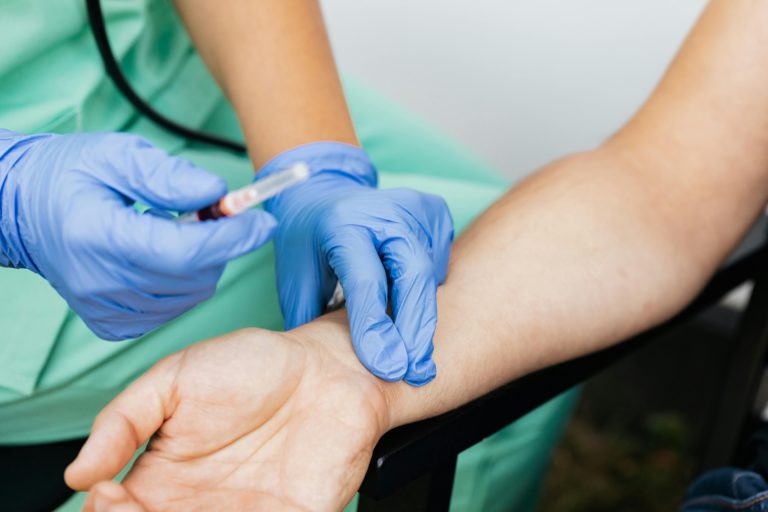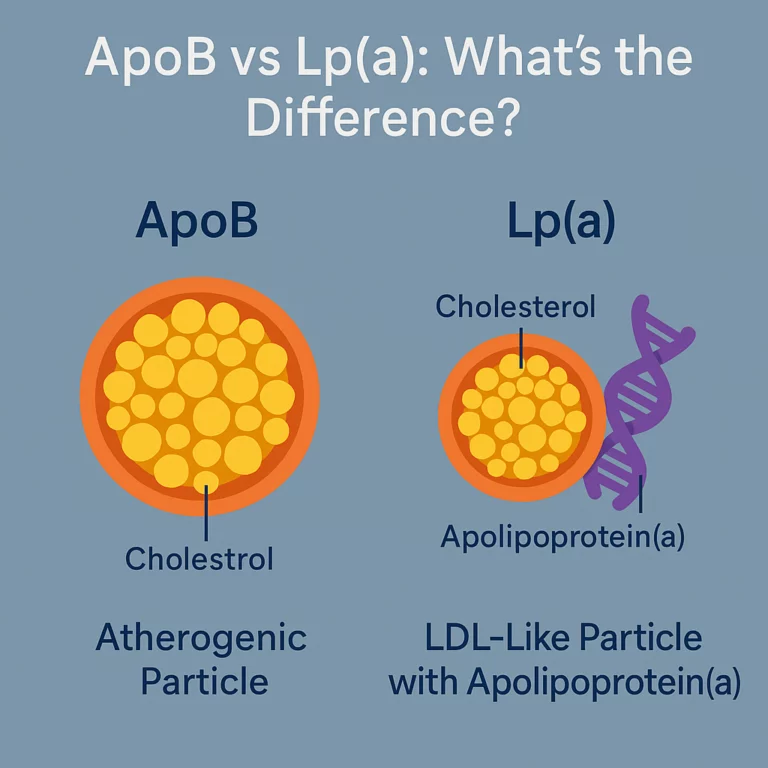
Are you experiencing blood clots during your period and wondering if it’s normal? Menstrual blood clots can be concerning and uncomfortable, but they are a common occurrence for many women. We will discuss what menstrual blood clots are, why they form, and how common they are. We’ll also explore the differences between normal and abnormal menstrual blood clots, as well as the causes and symptoms of heavy periods with blood clots. Additionally, we’ll provide tips for managing menstrual blood clots and when to consider medical treatment. Read on to learn everything you need to know about blood clots during your period.
What Exactly Are Menstrual Blood Clots?
Menstrual Blood clots are thick, gel-like masses that can be passed during a period. They’re made up of blood cells, fibrin, and tissue from the uterus.
Why do they form? As the uterus sheds its lining during a period, the blood expelled can coagulate and form clots if it flows out quickly. Blood clots can range in size from small clumps to larger, quarter-sized masses. During a period, the uterus sheds its lining in order to prepare for a potential pregnancy.
Small to moderate-sized blood clots are usually nothing to worry about, but larger clots or persistent heavy bleeding may require medical attention. If you’re experiencing painful or large blood clots during your period, talk to your healthcare provider to determine the underlying cause and appropriate treatment.
Why Do Menstrual Blood Clots Form?
Menstrual blood clots form when blood coagulates, or clots, before it can exit the body during a period. Heavy menstrual flow or a rapid rate of blood loss are common causes.
During a period, the uterus contracts to expel the lining that has built up. This can cause blood to be expelled quickly, interfering with its ability to clot. If the blood doesn’t coagulate before exiting, it can pool together and form clumps.
Blood clots during a period can be caused by a variety of factors, including
- Hormonal imbalances
- Uterine fibroids, Endometriosis
- Adenomyosis, and certain medications can cause blood clots during a period. In some cases, they may be a symptom of an underlying health condition.
While small to moderate-sized blood clots are normal, larger clots or persistent heavy bleeding should be evaluated by a healthcare provider. Talk to your doctor if you’re experiencing heavy bleeding or blood clots during your period to determine the underlying cause and appropriate treatment.
How Common Are Menstrual Blood Clots?

Menstrual Blood clots are a
common occurrence during a period. In fact, most women will experience blood clots at some point during their reproductive years.
The size and frequency of menstrual blood clots can vary from person to person. Some women may only experience small, barely noticeable clots, while others may experience larger, more noticeable clots.
Factors such as age, hormonal changes, and underlying health conditions can also impact the frequency and size of blood clots during a period. Women who experience heavy periods, or menorrhagia, are also more likely to experience blood clots.
It’s important to note that while menstrual blood clots are common, persistent heavy bleeding or the passage of large blood clots may indicate an underlying health condition that requires medical attention. If you’re concerned about the frequency or size of blood clots during your period, talk to your healthcare provider to determine the underlying cause and appropriate treatment.
What Size and Shape of Blood Clots are Normal During a Period?
The
size and shape of blood clots during a period can vary from person to person. In general, small to moderate-sized clots are normal and may appear as dark red or maroon in color.
Blood clots that are larger than a quarter or the size of a small egg, or that are accompanied by heavy bleeding, may indicate an underlying health condition and should be evaluated by a healthcare provider.
Additionally, the shape of blood clots can also vary. Some may be oval or round, while others may appear more elongated or irregular in shape.
It’s important to note that the size and shape of blood clots may change throughout a period and can be influenced by factors such as hormonal changes, age, and underlying health conditions.
What Are the Differences Between Normal and Abnormal Menstrual Blood Clots?
Normal Menstrual Blood Clots are small to moderate in size, dark red or maroon, and accompanied by light bleeding. They may vary in shape and consistency but shouldn’t interfere with daily activities.
Abnormal Menstrual Blood Clots may be larger than a quarter or a small egg, and may cause heavy bleeding or other symptoms like pain or discomfort. They may also have an irregular shape or be accompanied by unusual discharge.
Abnormal Menstrual Blood clots could be a sign of underlying health conditions like fibroids, endometriosis, or hormonal imbalances. If you notice a significant change in clot size, frequency, or appearance, or experience abnormal symptoms during your period, talk to your healthcare provider to determine the underlying cause and appropriate treatment.
What Causes Heavy Periods With Blood Clots?
 Heavy periods with blood clots can be caused
Heavy periods with blood clots can be caused by hormonal imbalances, fibroids, endometriosis, adenomyosis, pelvic inflammatory disease, and bleeding disorders.
Hormonal Imbalances: Disrupt the balance of menstrual hormones, leading to heavy and irregular periods with blood clots.
Fibroids: Are noncancerous growths in the uterus that can cause heavy bleeding and blood clots.
Endometriosis: Occurs when the lining of the uterus grows outside it, leading to heavy bleeding and painful periods. Adenomyosis is when the lining of the uterus grows into the muscle wall, causing heavy bleeding and blood clots.
Pelvic Inflammatory Disease: Is an infection of the reproductive organs that can cause heavy bleeding and blood clots.
Bleeding Disorders: Such as von Willebrand disease or platelet disorders can also cause heavy periods with blood clots.
Treatment options may include hormonal therapy, medication to reduce bleeding, or surgery in severe cases.
When Should You Be Concerned About Blood Clots During Your Period?
While Blood Clots
during your period are common, there are situations where you should be concerned and seek medical attention if you experience:
- Blood clots larger than a quarter or the size of a golf ball
- Heavy bleeding, severe cramps, or other symptoms such as dizziness or lightheadedness
- Blood clots for the first time or suddenly, especially if you’re older than 25 years
- Persistent blood clots over several menstrual cycles or other symptoms such as pelvic pain or abnormal vaginal discharge.
In rare cases, Blood Clots during your period may indicate a more serious condition such as uterine cancer or a bleeding disorder. A healthcare provider can perform a physical exam and order additional tests as needed to determine the cause and provide appropriate treatment.
If you’re concerned about your menstrual bleeding patterns, including the presence of blood clots, don’t hesitate early diagnosis and treatment can help prevent complications and improve your quality of life.

Can Birth Control Pills Affect the Presence of Blood Clots During a Period?
Yes, birth control pills can affect the presence of blood clots during your period. They contain synthetic hormones that regulate your menstrual cycle and prevent ovulation which can reduce the amount of blood flow and clotting.
Birth control pills can be prescribed to women with heavy menstrual bleeding and blood clots, but they may not work for everyone and can have side effects.
It’s also worth noting that some types of birth control pills, such as those with higher doses of estrogen, may increase the risk of blood clots in some women.
How to Manage Menstrual Blood Clots: Tips and Remedies
- Use menstrual products designed for heavy bleeding: Menstrual cups or pads specifically designed for heavy bleeding can help manage blood clots and reduce leakage.
- Stay hydrated: Drinking plenty of water can help prevent dehydration, which can make menstrual cramps and heavy bleeding worse.
- Apply heat: Applying heat to your lower abdomen can help reduce cramping and ease the flow of blood.
- Try over-the-counter pain relief: Over-the-counter pain relief medications like ibuprofen or acetaminophen can help alleviate cramps and discomfort.
- Consider hormonal birth control: As mentioned earlier, hormonal birth control can help regulate menstrual cycles and reduce the amount of bleeding and clotting.
- Consult a healthcare provider: If you’re experiencing heavy bleeding or blood clots, talk to a healthcare provider. They may recommend additional treatments or suggest testing for underlying conditions that may be contributing to your symptoms.
It’s important to note that while these
tips and remedies may be helpful, they may not be effective for everyone. Always talk to a healthcare provider before starting any new treatments or remedies to ensure they are safe and appropriate for your individual needs.
Medical Treatments for Menstrual Blood Clots: When to Consider Seeing a Doctor

While most cases of menstrual blood clots are normal, there are instances where
medical treatment may be necessary. If you experience any of the following symptoms, you should consider seeing a doctor:
- Severe pain during menstruation
- Heavy bleeding that lasts for more than a week
- Passing large blood clots, especially if they’re accompanied by excessive bleeding
- Symptoms of anemia, such as fatigue, weakness, and shortness of breath
Don’t hesitate to discuss all treatment options with your doctor, and be sure to

 Are you experiencing blood clots during your period and wondering if it’s normal? Menstrual blood clots can be concerning and uncomfortable, but they are a common occurrence for many women. We will discuss what menstrual blood clots are, why they form, and how common they are. We’ll also explore the differences between normal and abnormal menstrual blood clots, as well as the causes and symptoms of heavy periods with blood clots. Additionally, we’ll provide tips for managing menstrual blood clots and when to consider medical treatment. Read on to learn everything you need to know about blood clots during your period.
Are you experiencing blood clots during your period and wondering if it’s normal? Menstrual blood clots can be concerning and uncomfortable, but they are a common occurrence for many women. We will discuss what menstrual blood clots are, why they form, and how common they are. We’ll also explore the differences between normal and abnormal menstrual blood clots, as well as the causes and symptoms of heavy periods with blood clots. Additionally, we’ll provide tips for managing menstrual blood clots and when to consider medical treatment. Read on to learn everything you need to know about blood clots during your period.
 Menstrual Blood clots are a common occurrence during a period. In fact, most women will experience blood clots at some point during their reproductive years.
The size and frequency of menstrual blood clots can vary from person to person. Some women may only experience small, barely noticeable clots, while others may experience larger, more noticeable clots.
Factors such as age, hormonal changes, and underlying health conditions can also impact the frequency and size of blood clots during a period. Women who experience heavy periods, or menorrhagia, are also more likely to experience blood clots.
It’s important to note that while menstrual blood clots are common, persistent heavy bleeding or the passage of large blood clots may indicate an underlying health condition that requires medical attention. If you’re concerned about the frequency or size of blood clots during your period, talk to your healthcare provider to determine the underlying cause and appropriate treatment.
Menstrual Blood clots are a common occurrence during a period. In fact, most women will experience blood clots at some point during their reproductive years.
The size and frequency of menstrual blood clots can vary from person to person. Some women may only experience small, barely noticeable clots, while others may experience larger, more noticeable clots.
Factors such as age, hormonal changes, and underlying health conditions can also impact the frequency and size of blood clots during a period. Women who experience heavy periods, or menorrhagia, are also more likely to experience blood clots.
It’s important to note that while menstrual blood clots are common, persistent heavy bleeding or the passage of large blood clots may indicate an underlying health condition that requires medical attention. If you’re concerned about the frequency or size of blood clots during your period, talk to your healthcare provider to determine the underlying cause and appropriate treatment.
 Heavy periods with blood clots can be caused by hormonal imbalances, fibroids, endometriosis, adenomyosis, pelvic inflammatory disease, and bleeding disorders.
Hormonal Imbalances: Disrupt the balance of menstrual hormones, leading to heavy and irregular periods with blood clots.
Fibroids: Are noncancerous growths in the uterus that can cause heavy bleeding and blood clots.
Endometriosis: Occurs when the lining of the uterus grows outside it, leading to heavy bleeding and painful periods. Adenomyosis is when the lining of the uterus grows into the muscle wall, causing heavy bleeding and blood clots.
Pelvic Inflammatory Disease: Is an infection of the reproductive organs that can cause heavy bleeding and blood clots.
Bleeding Disorders: Such as von Willebrand disease or platelet disorders can also cause heavy periods with blood clots.
Treatment options may include hormonal therapy, medication to reduce bleeding, or surgery in severe cases.
Heavy periods with blood clots can be caused by hormonal imbalances, fibroids, endometriosis, adenomyosis, pelvic inflammatory disease, and bleeding disorders.
Hormonal Imbalances: Disrupt the balance of menstrual hormones, leading to heavy and irregular periods with blood clots.
Fibroids: Are noncancerous growths in the uterus that can cause heavy bleeding and blood clots.
Endometriosis: Occurs when the lining of the uterus grows outside it, leading to heavy bleeding and painful periods. Adenomyosis is when the lining of the uterus grows into the muscle wall, causing heavy bleeding and blood clots.
Pelvic Inflammatory Disease: Is an infection of the reproductive organs that can cause heavy bleeding and blood clots.
Bleeding Disorders: Such as von Willebrand disease or platelet disorders can also cause heavy periods with blood clots.
Treatment options may include hormonal therapy, medication to reduce bleeding, or surgery in severe cases.

 While most cases of menstrual blood clots are normal, there are instances where medical treatment may be necessary. If you experience any of the following symptoms, you should consider seeing a doctor:
While most cases of menstrual blood clots are normal, there are instances where medical treatment may be necessary. If you experience any of the following symptoms, you should consider seeing a doctor:







